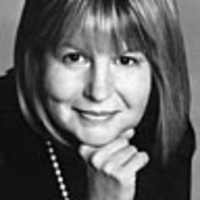
Yes, Ayelet Waldman wrote that essay in which she said she loved her husband more than she loved her children. She called her children satellites! When this appeared in The New York Times, she was excoriated by the petty maternal Savonarolas, the furious self-appointed ethical judges who love their children more than anything and need to shout it from the rooftops of cyberspace. She ended up on Oprah! Although I didn’t join in the fray, I too have loved my children so intensely that it has sometimes made my love for their fathers seem unimportant. Now I know why.
Literary heartthrob Michael Chabon is the quiet hero of this funny, moving, important book. When things are good, Chabon shoulders half the domestic load. When things are bad (and things get very bad in this book) he is loving and forgiving.
It’s because I wasn’t married to Michael Chabon.
Literary heartthrob Chabon is a quiet hero of this funny, moving, important book. A man of infinite good humor, fairness, and optimism—in spite of his extraordinary writing talent and Pulitzer Prize. When Waldman wants to work full-time—she is a Harvard-educated lawyer with a job she loves—Chabon is happy to take the children; when she wants to quit and be with the kids, he is happy to switch roles. When things are good, Chabon is steady and shoulders half the domestic load; when things are bad (and things get very bad in this book), he is loving and forgiving.

At first Waldman’s engaging breezy humor seems directly descended from Ann Lamott’s brilliant, pioneering Operating Instructions. Mothering memoirs have become a separate genre; the isolation and sense of failure inherent in mothering inspires many of us to try to break through the cultural wall around each mother and write books with the message that we’re not alone. (My mothering book came out in 2001.) In her opening chapters, Waldman’s wit and honesty seems directed at making mothers feel better about being, well, mothers. “I feel like a bad mother,” she admits, “even when by all reasonable analysis I’m a perfectly fine mother.” As she writes with typical deadpan humor: “A good mother remembers to serve fruit at breakfast, is always cheerful and never yells, manages not to project her own neuroses and inadequacies onto her children, is an active and beloved community volunteer. She remembers to make playdates, her children’s clothes fit, she does art projects with them and enjoys all their games. And she is never too tired for sex.” But Waldman’s book is actually a tragedy wrapped in a comedy. She’s up to something much darker and more complicated than amusement and good company.
More than halfway through this short book, this adorable guide takes the reader by the hand and leads her to a terrible place. The great accomplishment of this book is that tragedy doesn’t alter Waldman’s character or weaken the bond she has formed with the reader by joking and vamping and nailing daily mothering problems on the head. In the second half of this book, the Waldman-Chabon family runs right into a nightmare. First the couple’s third child, who they have seen in the sonogram and affectionately named Rocketship, is diagnosed in utero with a genetic defect. At four months' pregnant, Waldman is forced to make a dreadful choice. The best study she finds “showed a good chance that Rocketship would be born without obvious defects, and a small chance that he would suffer growth retardation, hypotonia, structural central nervous system abnormalities and seizures, facial malformations, failure to thrive and developmental delay. There was no way, however, to tell into which group he fell.”
Waldman is a pessimist, convinced that she carries bad luck with her, but Chabon is an optimist and favors taking chances. In parenting and in marriage, this is where push comes to shove, but this couple doesn’t shove. Instead they talk and do research and cry and even pray. Finally, in a misery which Waldman describes brutally, they decide to end the pregnancy. Her post-abortion discussion of abortion is one of the clearest treatments of that controversial subject I have read. When Waldman’s writing about the worst thing that can happen, she writes as well as when she is writing about the best things that can happen. “When we choose to have an abortion, we must do so understanding the full ramifications of what we are doing. Anything less feels to me hypocritical, a selfish abnegation of reality and responsibility.” The last thing Waldman asks the gynecologist before he puts her under is to be sure her baby feels no pain as he is killed.
Healing is slow. First Waldman joins an Internet group called A Heartbreaking Choice, but eventually she starts another group, The Dead Baby Club. “Once something like this happens to you, you learn that among the happy community of Bugaboo strollers and preschool picnics is a secret society of loss, of miscarriage and stillbirth, genetic termination and SIDS, like a single black thread winding through a length of white silk,” she writes.
Waldman finally has another child, but her life as a mother is dogged with difficulty. She is diagnosed bipolar and finds that she can’t function without the drugs. After doing her research, she decides to continue taking an approved antidepressant while pregnant with her fourth child. Then she’s haunted by the specter that that child’s palate malformation may have been caused by the drug. “It sickened me to think that the treatment I took for my disease might have damaged him,” she writes. But it’s her other son, Zeke, who ends up with a serious learning disability.
People are always telling memoir writers how brave they are. They are always congratulating us on our honesty. I have come to think that the opposite is true. I write not because I am unafraid but because I am very afraid. I write not to reveal the story but to control the story. Of course I also write to bear witness, and to enlighten, but the principal energy I bring to the task is a desire to own the story, to present it in a way that is bearable, to make sense of it, if only by reducing it to 12 point Times Roman. Waldman is a courageous and talented writer. Her greatest accomplishment in this book is to take her experience—some of our worst fears—and make it something we can understand. She drags the scary boogeyman out from under the bed. She opens the door of that spooky closet and turns on the light. Isn’t that a mother’s real job?
Plus: Check out Book Beast, for more news on hot titles and authors and excerpts from the latest books.
Susan Cheever is the author of numerous works of fiction and nonfiction including American Bloomsbury, My Name is Bill, Note Found in a Bottle, A s Good as I Could Be, Home Before Dark, and Treetops. She is a Guggenheim Fellow, a director of the Corporation of Yaddo, and a member of the Author’s Guild. Cheever teaches at the Bennington Writing Seminars and at the New School.






